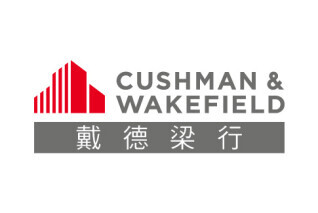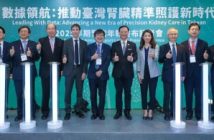Farewell to subdivided units and optimize the living environment
We are pleased to see that the government’s taking proactive measures in housing supply and land policy to address the housing problem. The introduction of a rental system for subdivided units (SDUs), which will be renamed as Basic Housing Units, aims to improve the living conditions for low-income individuals and grassroots families, gradually alleviating the subdivided units’ issue. However, the costs associated with renewing SDUs may reduce the supply, potentially leading to higher rents and increased financial burden for grassroots households.
Housing supply and land policy
The government has indicated that 3,000 hectares of developed land will be available for development over the next decade, which is a step toward stabilizing long-term housing supply. However, we anticipate that a part of the land will be in the Northern Metropolis. We recommend that the government closely monitor the infrastructure development timetable for the area, ensuring that supporting facilities keep pace with land development. In addition, we suggest that the government flexibly adjust the reserve price and terms of land sales based on market conditions to prevent excessive restrictions that could lead to failed bids, ultimately affecting long-term stability of housing supply.
Welcome more housing supply and shorter waiting times
The Policy Address reflects the government’s commitment to increasing public housing supply, targeting 189,000 units over the next five years. We are also pleased to see the government will gradually build light public housing (LPH) and utilize undeveloped land for rapid housing solutions through Modular Integrated Construction (MiC). We recommend that the government continue to seek suitable public housing sites and expedite the redevelopment of aging housing estates to effectively allocate resources to those in greatest need.
Response to the Policy Address 2024/2025 by John Siu, Managing Director, Hong Kong, Cushman & Wakefield:
Office Market
We are pleased to see the Government strengthening the “Nurture Talents” initiatives and pledging to encourage the market to convert commercial buildings by relaxing regulations on planning, land administration, and building plan approval. This will not only enhance the future supply of student hostels but also help alleviate the vacancy pressure of underutilized office buildings.
We suggest that the Government consider relaxing the waiver application policy to facilitate the conversion of office or hotel buildings on commercial sites into student or talent hostels. This can minimize the costs and time required for owners/operators to apply for and maintain a hotel operation license, while allowing them to legally use the office building or hotel for residential purposes. Additionally, the Government may also consider providing subsidies or loans to owners/operators to reduce conversion costs, expediting project implementation and completion.
Logistic Market
We believe that reducing the liquor tax will help increase the sales of spirits, thereby supporting the demand for spirits’ storage and warehouse spaces. According to current policies in Hong Kong, spirits must be stored in dangerous goods warehouses, which require licenses from multiple government departments. The license application process is strict and time-consuming, while most industrial and warehouse sites in Hong Kong have lease conditions that prohibit the storage of dangerous goods. If the industry’s demand for spirits storage increases, the relevant government departments should introduce corresponding measures to facilitate the logistics industry in providing sufficient storage and logistics services legally for their spirits supplier clients.
Reducing the liquor tax will help boost the consumption, catering and retail markets
We believe that lowering the liquor tax will help spirits sellers and the bar industry reduce costs, thereby lowering retail prices and attracting more citizens and tourists to spend at bars. This, in turn, will increase foot traffic and revenue for bars. With the Government’s vigorous efforts to revitalize the tourism industry, we believe this move will support the overall consumption, catering, and retail markets.
Response to the Policy Address 2024/25 by Rosanna Tang, Executive Director, Head of Research, Hong Kong of Cushman & Wakefield:
We are pleased to see the Government attaches greater importance to the development of attracting high-calibre talents and has proposed more policies to trawl for talents. According to the Policy Address, in the next 5 years, there will be an estimated manpower shortage of about 180,000 from various industries. On the other hand, the Government is committed to building the “Study in Hong Kong” brand and developing the Northern Metropolis University Town in the Northern Metropolis. All these policies will help attract talent and students from all over the world to Hong Kong in the longer run.
According to our latest estimates, on average, more than three university students compete for one bed in Hong Kong, while the supply shortage of student beds in the future may exceed 40,000 beds, making those students who are unable to secure hostel places to look for rental housing in the private market. We are pleased to see that the Government is willing to work towards relaxing regulations to potentially convert suitable commercial buildings or hotels into student accommodations, however, the Government still needs to make long-term plans for the future supply of student hostels and talent apartments. The rising number of people working and studying in Hong Kong is expected to bring greater growth momentum to rental apartments, this will likely attract more investors to focus on the talent and student housing sectors, benefitting investment opportunities on convertible serviced apartments and hotel assets.
Loosening the loan-to-value ratio may have little effect on short-term stimulus
We are pleased to see that the government has relaxed the loan-to-value ratio (LTV) policy by standardizing the loan-to-value ratio (LTV) policy for residential and non-residential properties to 70%, lowering the threshold for home ownership and investment. However, the residential market is greatly affected by interest rates and economic circulation, coupled with the cautious lending attitude of banks, the stimulus effect on the residential and non-residential investment markets in the short term is limited, and it is difficult to reflect it in the market in real time.
Response to the Policy Address 2024/25 by Alva To, Vice President, Head of Consulting, Greater China of Cushman & Wakefield:
The Northern Metropolis has introduced industrial development
We are pleased to see the government adopting a large-scale land-disposal approach, on a pilot basis, to expedite development of the Northern Metropolis. This approach selects sizable land parcels with commercial value that will provide public facilities, collectively managed by project developers to expedite the completion of the area with more coordinated design.
The Northern Metropolis is envisioned as a livable, workable, and tourist-friendly region in Hong Kong. We are pleased to see the government is considering innovation, technology, education, and medical research as key drivers for industrial development. The development must take into account the entire industrial chain, including mainstream industries, dependent industries, complimentary industries, related industries, and supporting facilities. These require considerable land areas and flexible land use and planning.
While promoting the development of the area, the government must ensure the coordination of the overall transportation infrastructure and public facilities in the Northern Metropolis. Industrial development should align with the industrial chain structures of other cities in the Greater Bay Area, fostering a complementary role that enhances Hong Kong’s integration into the broader national development strategy.
The Guangdong-Hong Kong-Macao Greater Bay Area optimizes the connectivity mechanism and strengthens the level of integration
We are pleased by the government’s ongoing efforts to enhance the mutual market access regime and strengthen Hong Kong’s status as the world’s largest offshore Renminbi (RMB) business hub, contributing to the RMB’s internationalization. Key measures effectively respond to the National Development and Reform Commission’s “Three-Year Action Plan for the development of International Business Environment in the Guangdong-Hong Kong-Macao Greater Bay Area”, announced at the end of 2023.
These measures include continuous improvement of our infrastructure and upgrades to the Central Moneymarkets Unit, facilitating the settlement of various assets in different currencies for international investors. Developing fixed income market infrastructure, for instance, setting up a central clearing system for RMB-denominated bond repurchase (repo) transactions, will make RMB sovereign bonds issued in Hong Kong a more popular choice of collateral in offshore markets.
We believe that the government will successfully align with the Three-Year Action Plan to attract foreign enterprises and capital, enhance the internal management system, unify the law enforcement frameworks, and create an open environment for cooperation, co-existence, and strengthened connectivity, which will accelerate the in-depth promotion of the Bay Area Connect project, ultimately enhancing the level of integration across the region.
Response to the Policy Address 2024/25 by Tom Ko, Executive Director, Head of Capital Markets, Hong Kong of Cushman & Wakefield:
Capital Market:
We are pleased to see the government’s enhancement on the New Capital Investment Entrant Scheme (2024) to further review the investment thresholds, streamlining the approval process, and diversifying asset classes. Investment in residential properties is permitted, provided that the transaction price is no less than $50 million, with the amount of real estate investment to be counted towards the total capital investment capped at $10 million. In addition, investments made through an eligible private company wholly owned by an applicant will be counted towards the applicant’s eligible investment, effective from March 1, 2025.
As the acclaimed Asia World City, Hong Kong is closely connected to other influential financial centres, facilitating 24-hour financial transactions. Hong Kong’s unique geographical advantages, well-established financial infrastructure, thriving innovation and technology ecosystem, world-class talent pool, and vibrant urban atmosphere make it an ideal choice for investors seeking to capitalize the world’s fastest-growing opportunities.
Click here for high-res pictures.
Hashtag: #Cushman&Wakefield
The issuer is solely responsible for the content of this announcement.
About Cushman & Wakefield
Cushman & Wakefield (NYSE: CWK) is a leading global commercial real estate services firm for property owners and occupiers with approximately 52,000 employees in nearly 400 offices and 60 countries. In Greater China, a network of 23 offices serves local markets across the region. In 2023, the firm reported revenue of $9.5 billion across its core services of valuation, consulting, project & development services, capital markets, project & occupier services, industrial & logistics, retail and others. It also receives numerous industry and business accolades for its award-winning culture and commitment to Diversity, Equity and Inclusion (DEI), sustainability and more. For additional information, visit ![]() www.cushmanwakefield.com.hk or follow us on LinkedIn (
www.cushmanwakefield.com.hk or follow us on LinkedIn (![]() https://www.linkedin.com/company/cushman-&-wakefield-greater-china).
https://www.linkedin.com/company/cushman-&-wakefield-greater-china).






